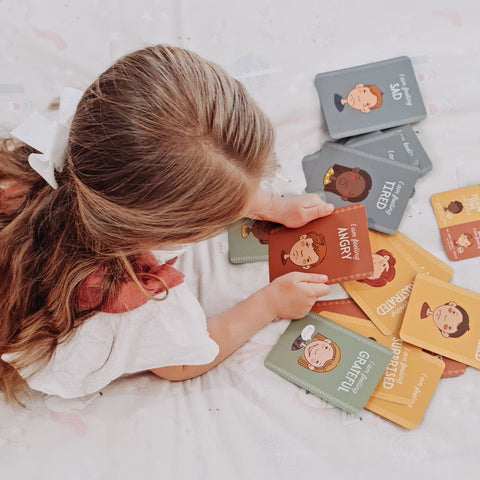Tips for Parenting Inflexible Children
Despite how fulfilling and joyful parenting can be, it isn’t always a walk in the park. At times, it can be challenging, exhausting, and frustrating to raise a young child, especially if they’re inflexible. Having to deal with an inflexible child only adds to this fatigue, and it often leads to parents punishing or dismissing them just to diffuse outbursts quickly. However, these methods aren’t the best and will not help you or your child in the long run. Inflexible children need a different approach to help them deal with their feelings and actions. If you’re parenting an inflexible child, here are a few things you can do to manage their difficult behavior:
Acknowledge your child’s feelings
There are times when parents can feel frustrated when their child is exhibiting strong emotions. Sometimes your first instinct is to shut the child down or tell them they shouldn’t be behaving in such a way. But this can make children feel ashamed of their feelings or frustrated that they are not being heard. Later, this can lead to them refusing to open up for fear of being dismissed.
Alternatively, authors and childcare experts Julie King and Joanna Faber suggest that instead of punishing the child for being angry or crying, it's better to let them release their emotions while you talk them through it. Finding out what is making them feel and behave a certain way can help you look for a way to manage their outbursts. When your child is experiencing a meltdown, don’t just wait for it to pass. Tell them to try to label the emotion and describe the problem so you can better understand it. When you’re on the same level, it’s easier to find a solution together. If discussing emotions is difficult for you and your child, we suggest using a visual aid such as the Emotions Cards for Kids to help prompt communication.
Extend compassion to your kids
Some parents may become exasperated by their children, thinking they are being inflexible to purposefully wind them up, and as a result will punish them for doing so. However, Dr. Ross Greene — author of The Explosive Child — refutes this idea. Based on the latest advances in neuroscience, children aren’t attention-seeking, manipulative, or unmotivated. Rather, their behaviours stem from brain-based defects in flexibility and frustration tolerance, which are two critical development skills. As such, they require a slightly different approach to parenting.
Consequently, reward and punishment, despite being traditional strategies, won’t work for these children. Dr. Greene emphasises that outbursts shouldn’t be seen as a flaw in the child or a failure of the parents, but something that takes time and skill to regulate. With this, parents need empathy and understanding so they can patiently help their kids calm back down. We suggest having a safe, quiet and calming space where children can go to emotionally regulate. Read here if you would like to find out how to create a sensory chill out space for your child.

Photo by Kindel Media.
Put yourself in their shoes
Some parents treat their children like mini-adults who are expected to understand how the world works the way they do. So when kids lash out because of a change in routine, it can be difficult to comprehend why they react in such a seemingly “immature” manner. It’s important to understand that empathy goes a long way. Your child is still learning to navigate such a big world with all these feelings. If you wouldn’t yell at an adult for a small mistake or for expressing emotions, why do it to your child? According to research from the University of Sydney, practicing mindfulness in your parenting can improve your child's own sense of empathy and prevent them from internalizing problems; it even lessens burnout on your end. If you want to understand your child's episodes, approach them with an attentive and kind mind and they will open up to you in turn.
Parents and children should work together to help solve problems and tackle big emotions. Parenting inflexible kids isn’t about trying to “fix” them. It involves understanding their feelings and giving them the time and the outlet to air them safely. For more about guiding your children through emotional outbursts, check out our post on ‘Stimming and Autism: how to emotionally regulate and stop meltdowns.’
Article was specially written for The Sensory Specialist by Amanda Grace
